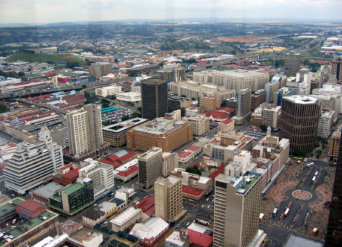- About
- Topics
- Story
- In-Depth
- Picks
- Opinion
- News
- Donate
- Signup for our newsletterOur Editors' Best Picks.Send
Read, Debate: Engage.
| editor: | Bob Koigi |
|---|
An unprecedented exodus of rural population to cities in search of better lives, and a limited and under resourced urban infrastructure are chocking the African cities even as the continent remains the fastest urbanizing in the world. Already growth averages 3.4 per cent with the population in cities expected to hit the 1.2 billion mark by the year 2050.
Yet for the dwellers it is a tough call, what with African cities being the most expensive and those migrating there finding themselves worse off than they were before. In fact numerous studies have posited that housing is about 55 per cent more expensive in African cities than it is elsewhere with the urbanites spending on average 59 per cent of their budget on food alone.
And while urbanization has historically been tied to industrialization with key cities like Manchester attracting a growing population due to the booming manufacturing sector, urbanization in Africa has been inspired by knee jerk and hazy reasons.
So we end up with huge population that cannot get meaningful jobs while putting a strain even on the basic of resources like water, housing and food. The result has been a cropping up of shanties, and boom in the informal economy. And while it has been a painful survival story for a majority of the estimated 60 per cent that live in these informal settlements, the informal economy in the African cities has been crucial in absorbing millions, fighting crime and generally building up resilience. Think about the street food vendors who meet the cardinal needs of the bottom of the pyramid populace, or the garbage collectors who transform the waste eyesore into manageable waste albeit to eke a living. And with the expected population boom in the cities, demand for their services will only grow.
Which is why as industry players deliberate on the most ideal pillars to build shocks against imminent threats to African cities, they have to be guided by inclusivity in making this vital constituency an integral aspect of the resilience agenda.
African cities more than any other will definitely continue experiencing shocks like pressure on housing, transport and security even as emerging ones like climate change become an everyday reality. The degree of resilience also lies in understanding the complex catalysts that trigger the risks then mapping out solutions on a case to case basis. No single one solution can claim to be a magic bullet, but addressing for example decent and affordable housing would automatically address concomitant problems like waste management.
